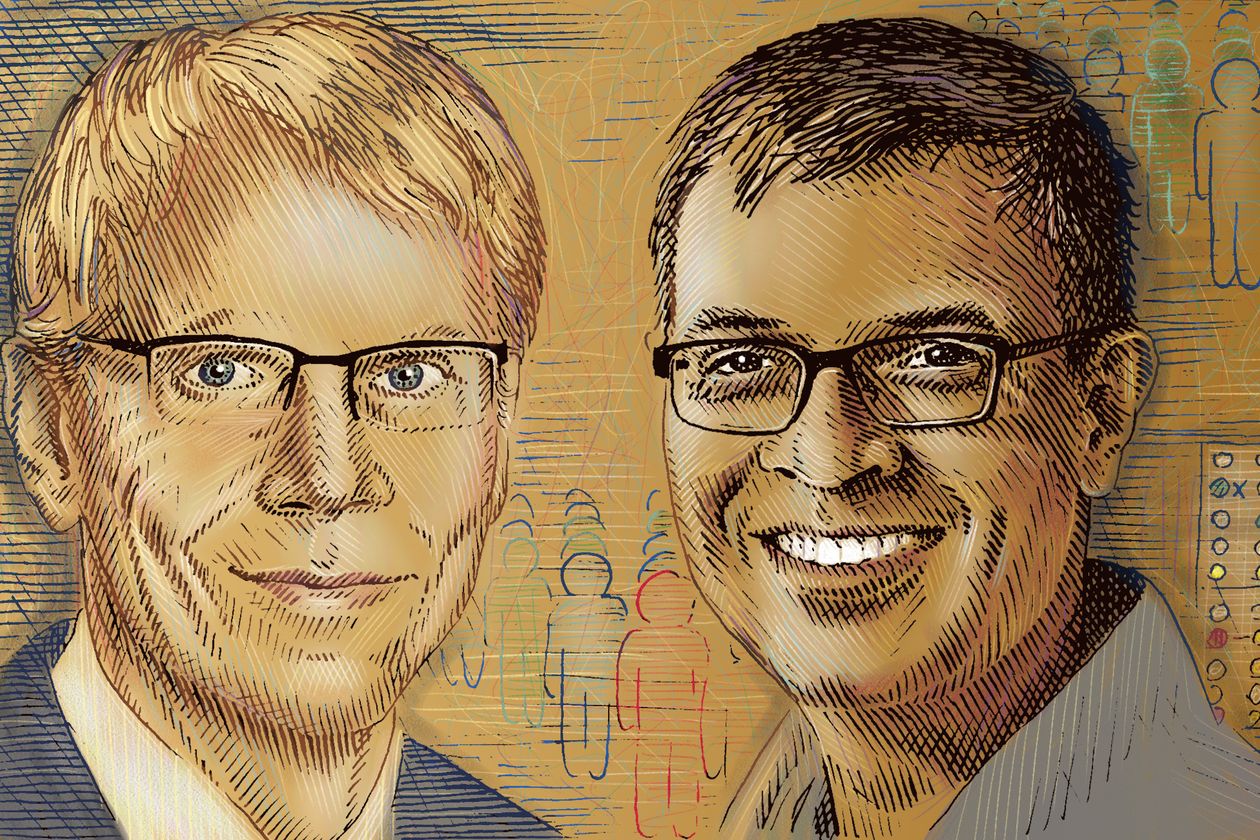
(Photo from WSJ by Barbara Kelley)
Interview concerning the Great Barrington Declaration authors:
“The politicization of Covid,” Mr. Kulldorff says, “is extremely unfortunate. People automatically assume what your political beliefs are based on your views on the pandemic. This is very strange, in my mind.” Dr. Bhattacharya adds that “the traditional markers for political identity have absolutely no meaning” in the context of Covid. Illustrating the point, Mr. Kulldorff says he has defended Sweden’s Social Democratic government, which “kept schools open against enormous international criticism,” criticized the British Conservative government for its lockdown, praised the Republican governor of South Dakota for her open-for-business policies, and criticized the pro-lockdown Republican governor of Massachusetts, where he lives. “I must be very split-minded,” he chuckles, “because in one place I’m a socialist, in another I’m a conservative.”
.
Concerning lockdowns:
In contrast to privileged professionals, Mr. Kulldorff says, the blue-collar class is “out there working, including high-risk people in their 60s. So the working class is building up the population immunity that will eventually protect all of us.” Dr. Bhattacharya adds that one of the reasons “minority populations have had higher mortality in the U.S. from the epidemic is because they don’t often have the option—even if they’re older or have co-morbid conditions—to stay at home.”
.
Mr. Kulldorff laments the closing of scientific minds. He cites “a very strange letter,” an open letter published on Sept. 9 by 98 faculty members of the Stanford Medical School criticizing Scott Atlas (a former member of the Stanford med-school faculty), who is on President Trump’s coronavirus task force. “They criticized him very harshly for being unscientific, for misrepresenting science,” but offered no evidence, Mr. Kulldorff says. The Swede wrote a letter to the Stanford Daily, a student newspaper, inviting Dr. Atlas’s critics to “a scientific discussion or discourse, but none of the 98 were willing to engage in that.” Mr. Kulldorff adds that, “from talking to Scott, who I’ve gotten to know somewhat through the epidemic, I learned that not a single one of them reached out to him prior to writing that letter, to verify that he actually believed the things they attributed to him.”
.
We circle back to the idea of herd immunity, which Mr. Kulldorff calls “the most misunderstood term of 2020.” He jokes that use of the term can invite “accusations of mass murder, and Dr. Bhattacharya laments its frequent “mischaracterization.” The words, he says, are a “technical term that comes out of standard models of epidemic spread.” It is the “end state of any epidemic where some immunity actually happens after infection. It’s a biological fact. It’s not something nefarious or strange.” Many media outlets, he complains, have said that “we’re advocating a herd-immunity strategy. That’s a propaganda term. After all, the lockdown-until-a-vaccine strategy will also end with herd immunity.”
“As an epidemiologist,” says Mr. Kulldorff, “it’s weird and stunning to have this discussion about herd immunity—flockimmunitet in Swedish.” He likens it to gravity: “You wouldn’t have physicists talking about whether we believe in gravity or not. Or two airline pilots saying, ‘Should we use the gravity strategy to get the airplane down on the ground?’ Whatever way they fly that plane—or not fly it—gravity will ensure eventually that the plane is going to hit the ground.”
Dr. Bhattacharya does say that he would call the idea “population immunity” if he could rephrase it. The word “herd,” he says, “has connotations that it doesn’t deserve.” But he stresses that herd immunity is a basic scientific principle, from which flows the one important question epidemiologists and policy makers need to consider: “How do we get to that end state with the least amount of devastation, the least amount of human misery, the least amount of death?”
.
Read interview HERE.